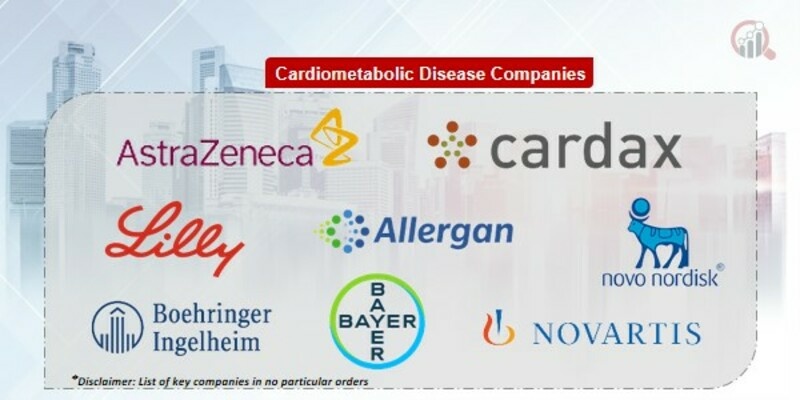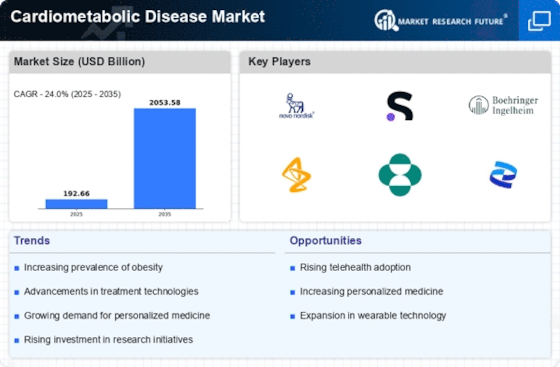Top Industry Leaders in the Cardiometabolic Disease Market

Latest Cardiometabolic disease Companies Update
Amgen Received FDA approval for its Parsabiv (etelcalcetide) injection for the treatment of secondary hyperparathyroidism in adult patients with chronic kidney disease on dialysis.
AstraZeneca Initiated Phase 3 trial of Farxiga (dapagliflozin) for the prevention of cardiovascular events in patients with type 2 diabetes and established atherosclerotic cardiovascular disease.
Boehringer Ingelheim Presented positive Phase 2 data for its GLP-1R agonist Efpeglenatide at the European Association for the Study of Diabetes (EASD) meeting, showing its potential for weight management and glycemic control in patients with type 2 diabetes.
Roche Entered into a multi-year collaboration with Verily (Alphabet subsidiary) to develop AI-powered tools for the personalized management of cardiometabolic diseases.
Novo Nordisk Partnered with Dexcom to integrate continuous glucose monitoring data with Novo Nordisk's insulin delivery systems, aiming to improve glycemic control and patient outcomes.
Abbott Collaborated with the American Diabetes Association (ADA) to launch a new initiative focused on improving diabetes education and self-management across diverse communities.
List of Cardiometabolic Disease Key Companies in the Market
- Cardax, Inc.
- Novartis AG
- Novo Nordisk A/S
- Eli Lilly and Company
- Bayer AG
- Allergan
- Boehringer Ingelheim International GmbH
- AstraZeneca










